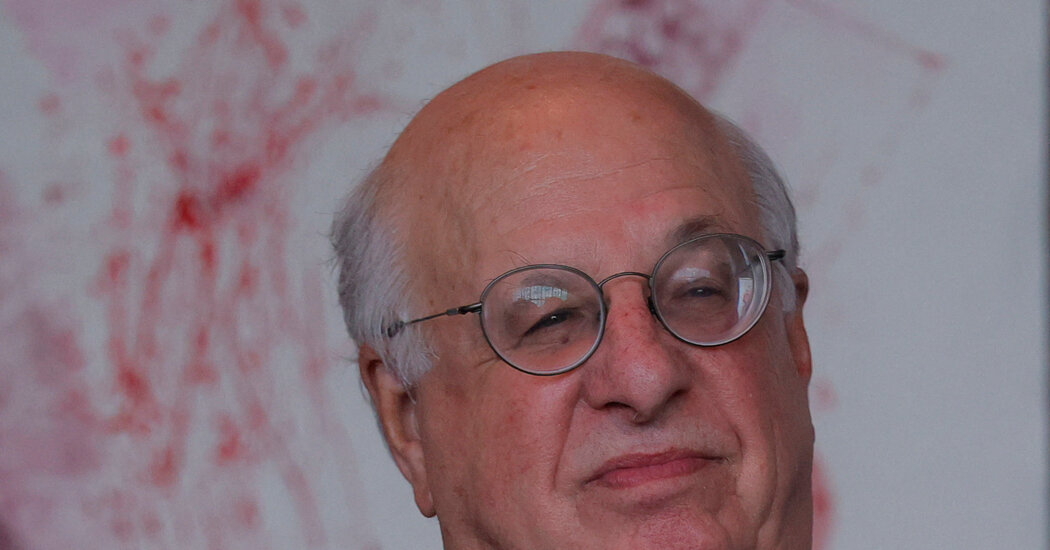Copyright The New York Times

A federal judge warned of an “existential threat to democracy” in a searing first-person essay published on Sunday, saying he had stepped down from the bench to speak out against President Trump. He accused Mr. Trump of “using the law for partisan purposes, targeting his adversaries while sparing his friends and donors from investigation, prosecution, and possible punishment.” The judge, Mark L. Wolf, wrote in The Atlantic magazine that Mr. Trump’s actions are “contrary to everything that I have stood for in my more than 50 years in the Department of Justice and on the bench.” The publication of the essay by Judge Wolf, 78, came two days after an announcement by the Federal District Court for Massachusetts that he was leaving his post as a senior-status judge. An appointee of President Ronald Reagan who also served in the Justice Department during the Ford administration, Judge Wolf offered one of the most explicit expressions of concern for the rule of law to come from a member of the federal judiciary amid Mr. Trump’s efforts to vastly expand the scope of presidential power. His seat on the court was filled by Judge Indira Talwani, a nominee of President Barack Obama, in 2014, after he stepped down from active service to senior status, a form of semi-retirement. In a phone interview, Judge Wolf said he had resigned not only to speak more freely about his own views, but for colleagues who are still on the bench. “I hope to be a spokesperson for embattled judges who, consistent with the code of conduct, feel they cannot speak candidly to the American people,” he said. Lower court judges have repeatedly issued rulings blocking Mr. Trump’s initiatives, provoking an aggressive response from administration officials who have accused them of engaging in partisan politics, going as far to call for some of them to be impeached. In many cases, those judges have seen their decisions effectively reversed on a preliminary basis by the conservative majority on the Supreme Court. Responding to a New York Times questionnaire, dozens of lower-court federal judges criticized the role that those emergency rulings by the Supreme Court, on the so-called shadow docket, have played in the ongoing conflict between the judiciary and the executive branch. “There are judges who anonymously expressed concerns about the unreasoned decisions on the shadow docket, which I also expressed in this article,” he said. The White House did not immediately respond to a request for comment. Trump-aligned legal figures were quick to criticize Judge Wolf. Robert Luther III, a professor at Antonin Scalia Law School who helped choose judicial nominees as a lawyer in the White House Counsel’s Office during Mr. Trump’s first administration, said he hoped other judges engaged in what he called “anti-Trump activism” would follow Judge Wolf’s lead and leave the bench. “Step right up, please!” he wrote on social media. Judge Wolf had a long and storied career on the federal bench. As the Massachusetts district’s chief judge, he presided over the trial of the Boston mobster James (Whitey) Bulger and wrote a 661-page opinion detailing misconduct by the F.B.I. related to Mr. Bulger, who had been a confidential informant. In 2023, in testimony before the Senate Judiciary Committee, he raised questions about the judiciary’s handling of Justice Clarence Thomas’ decision not to disclose of lavish gifts on his annual financial disclosure forms. The code of conduct for federal judges requires that they “act at all times in a manner that promotes public confidence in the integrity and impartiality of the judiciary,” a rule that has been interpreted to limit their public statements. In a letter last week to Chief Justice John G. Roberts Jr., Senator Charles E. Grassley of Iowa and Representative Jim Jordan of Ohio asked that the judges who responded to the Times questionnaire be investigated for potentially violating that rule. But in the eyes of Judge Wolf and other judges who have put warnings in their opinions, the actions of the administration deserve urgent scrutiny. In addition to claiming unilateral powers to spend, deport, and kill, Mr. Trump’s administration has also undertaken a far-reaching campaign to investigate and prosecute the president’s adversaries. Judge Wolf, who served in the Justice Department in the years after the Watergate scandal, wrote that Mr. Trump was “routinely and overtly” doing what President Nixon had done “episodically and covertly.” He cited a social media post by Mr. Trump which called on Attorney General Pam Bondi to prosecute James Comey, the former F.B.I. director; Senator Adam Schiff of California, and New York Attorney General Letitia James. Mr. Comey and Ms. James were subsequently indicted, and investigations of senior intelligence officials from the Obama administrations were also said to be underway. “Americans proudly say that we live in the longest-lived democracy in the world,” Judge Wolf said in the interview. “But that should teach us that all the others failed.”



